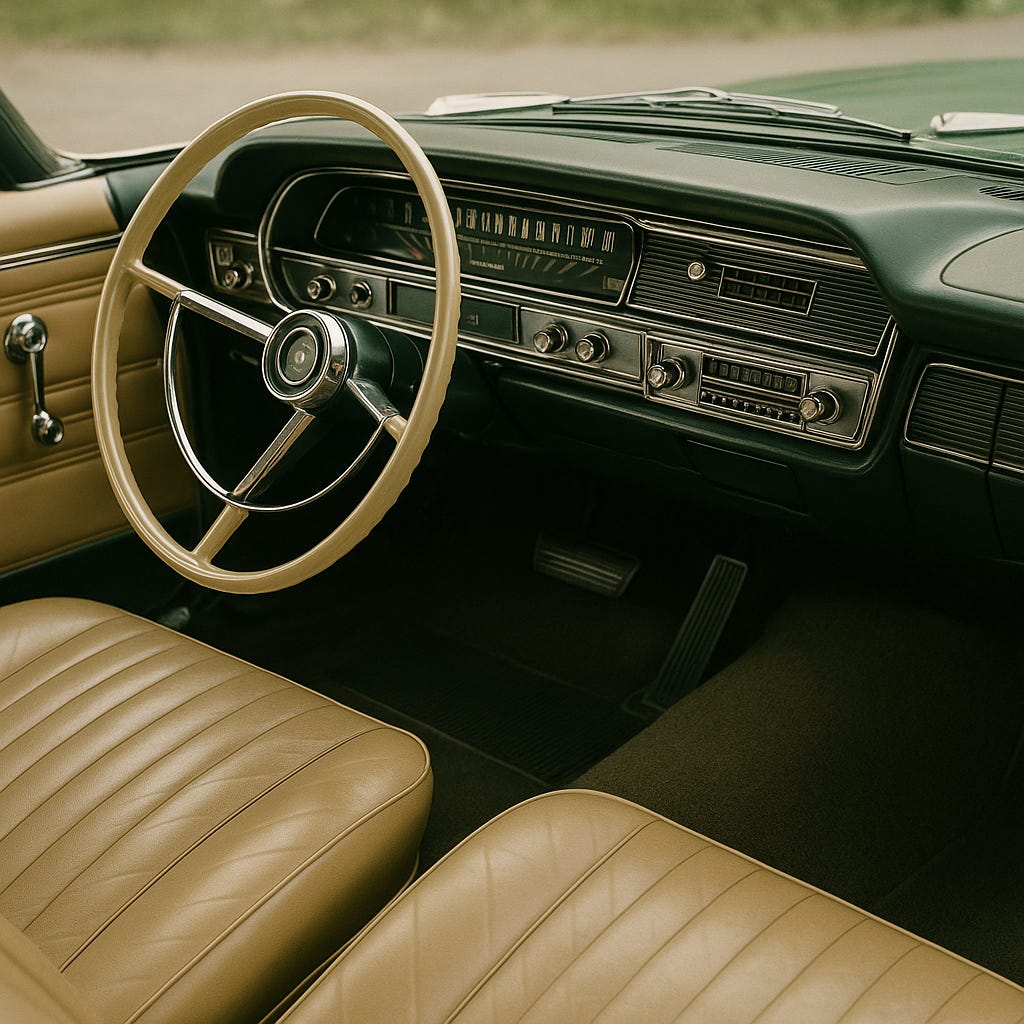From Crank Handles to Commands
What living through quiet revolutions can teach us about building the future together
Imagine living in a world where rolling down a car window required physical effort. A small hand crank, turned clockwise or counterclockwise, determined how much breeze you could let in. Now, imagine watching that world transform into one where you simply speak, and the car obeys. “Open the window,” you say, and it does.
This is not a small shift. This is not just about technology. It is about what it means to be human in a time of accelerating change.
My parents have lived through this arc. They were born into a world where innovation was mechanical and slow. Now they live in a world that responds to their voice. The contrast is not just astonishing—it is profound. It is the story of a species that dares to dream, to build, and to reimagine what is possible.
But the real story here isn’t about the machines. It’s about the minds that had to adapt to them. It’s about what it takes, mentally and emotionally, to live in a world that reshapes itself faster than your habits can catch up. To grow old in such a world is not a failure to keep up. It is a quiet triumph of flexibility, resilience, and grace.
We often underestimate what it means to live through such leaps in understanding. To witness the line between fiction and reality blur, again and again, and still greet the world with curiosity instead of fear. That is no small feat.
And yet, everyone is doing it. In every corner of the world, people are adapting to change they did not choose, often without warning or instruction. Some feel left behind. Others race ahead. But all of us are trying, in our own ways, to understand how to live with dignity in the face of constant reinvention.
This is where our shared humanity matters most. Because underneath all our differences, we are all aiming for the same things. We want to feel safe. We want to be seen. We want our children to have a future brighter than our past. The paths may vary, but the destination is shared.
What if we stopped treating those paths as battlegrounds? What if, instead, we treated them as experiments—unique attempts to reach a common good? What if our role, as individuals, was not to prove others wrong, but to help others get there faster, better, with less suffering?
Progress will always require change, but change does not have to come with division. It can come with cooperation. With grace. With the humility to say, “This isn’t how I grew up, but I am willing to learn.” And the wisdom to ask, “How can I help you understand, too?”
We do not need more control. We need more connection. Not stronger machines, but stronger communities. Not louder voices, but deeper listening.
This century will be defined not by the tools we invent, but by the people we become while using them. Let us become people who remember what it took to get here. Let us honor those who cranked open windows with tired hands and still kept dreaming of something better.
Because real magic is not technology. Real magic is the human capacity to imagine, to adapt, and to carry one another forward into a future that belongs to us all



